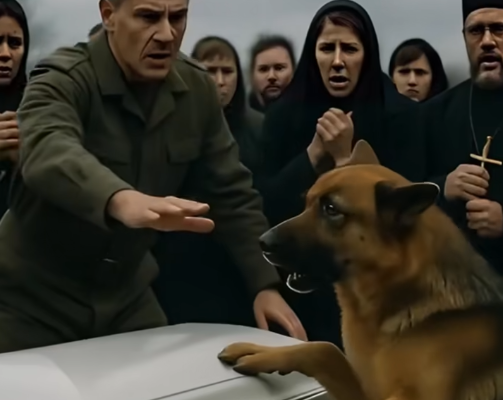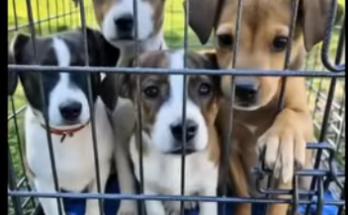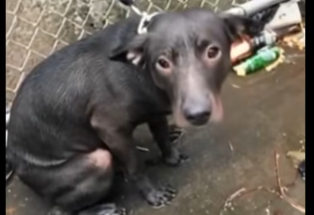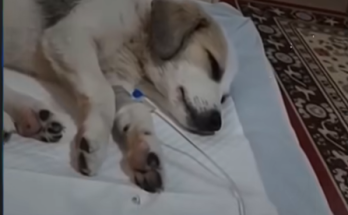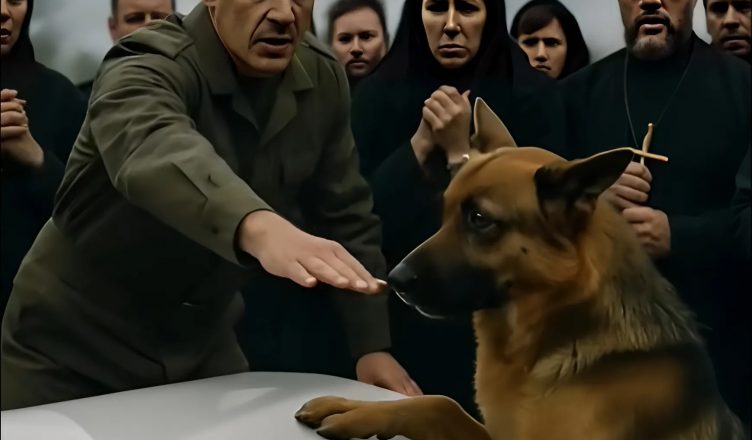
It was March, but it felt as though nature itself had paused. The air hung heavy in the cemetery on the edge of the village, dense and unmoving. A cold wind brushed across the hill overlooking the Danube, and the clouds drifted so low that people instinctively lowered their heads—as if in mourning, or reverence.
There were no spoken words among the gathered. Just the rustle of coats, the creak of frozen grass beneath hesitant feet. Some had their hands deep in their pockets, others stood stiffly, eyes locked on the earth ahead. A few worn-out children’s toys lay abandoned in the grass, next to a bunch of wilted daffodils. From beyond the iron fence, a nightingale sang—a song so haunting, it seemed unnatural, too solemn even for that moment.
She had been gone for a year. And now, they were finally laying her to rest.
The grave was new. There was no cross, just a small wooden sign with her name: Irina S., 1987–2025. A handful of soil still clung to the side of the mound, untouched by the gravedigger’s shovel. The crowd remained silent.
And then, through the silence—footsteps. Rapid, rhythmic, purposeful.
A dog appeared.
Large, black with a white patch on its chest. It sprinted up the hill, broke through the gathered mourners, and leapt onto the fresh grave without hesitation. He didn’t bark. He didn’t whine. He just lay down—his body stretched over the mound, his head resting gently on the soil.
For a few moments, no one moved.
Then, someone whispered, “That’s her dog… That’s Troy.”
Murmurs rippled through the crowd. A woman gasped. A man nodded solemnly. Troy had been missing for months—ever since Irina disappeared.
They had been inseparable. Irina, a local nurse, lived alone on the edge of the village. She was quiet, thoughtful, always seen with a book in hand and her loyal companion beside her. Troy was her shadow. She went to the market—he followed. She walked along the river—he matched her step for step. They were a pair.
And then one day, they both vanished.
Villagers searched. Flyers were posted. Hikers combed the trails near the cliffs. Nothing. Three months later, her body was found at the base of a steep rock face. No signs of foul play. Official reports called it an accident. Some whispered otherwise. Depression, maybe. But no one could be sure.
Troy was never found.
Until now.
No one knew how he got there, or where he had been. But he had returned—for her. On the day of her burial, guided by something no one could explain.
He did not move for hours. Rain began to fall. Mourners drifted away. Still, he remained. When someone approached to coax him off the grave, he growled—not with aggression, but with pain.
That night, he slept there. And the next night. And the next.
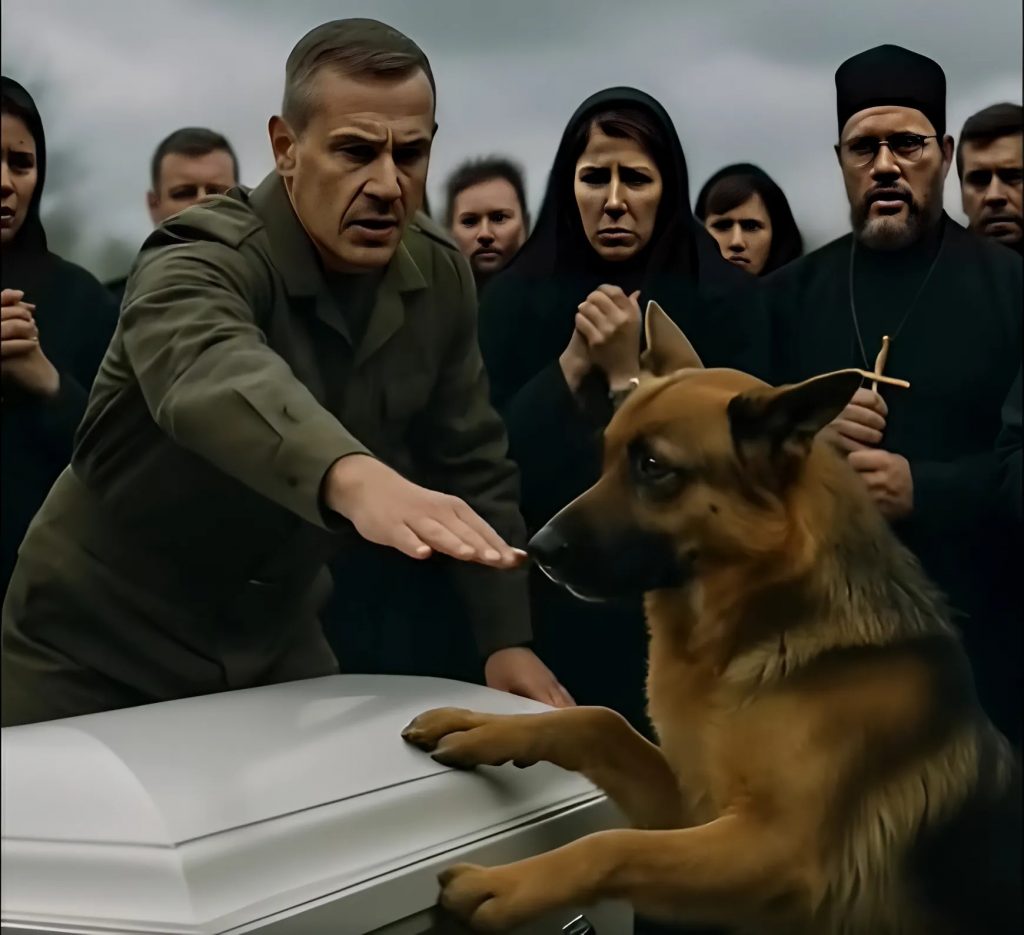
Residents began bringing him food and water. Someone built a small shelter beside the grave. But Troy never left her side. His fur became matted with mud and grass. His eyes dimmed, yet his body stood guard. Every morning he woke there. Every evening, he lay down in the same spot.
A Village Moved by a Dog
Within a week, the story reached the local news. A photo of Troy lying across the grave—his body stretched in silent vigil—spread rapidly across social media. Headlines followed:
“The Dog Who Wouldn’t Leave Her Side.”
“Loyalty That Death Couldn’t Break.”
“If Only People Loved This Way.”
The world watched as this small village became the setting for something universal. Grief. Devotion. Memory. Troy became more than a dog. He became a symbol.
People traveled from neighboring towns just to leave flowers at Irina’s grave. Children drew pictures of Troy and taped them to the cemetery fence. A local artist painted a mural of him on the wall of the village pharmacy where Irina used to work.
But Troy did not care for the visitors. He didn’t chase birds, didn’t wag his tail. He stayed where he believed he still belonged—next to her.
The Waiting Continues
Weeks passed. Spring returned. The clouds lifted. Grass began to grow around the grave. But Troy stayed.
Some days, he looked weaker. He ate less. Age and sorrow were catching up to him. And yet, no one dared move him. No one had the heart.
There was a quiet understanding among the villagers now. They didn’t try to adopt him. They didn’t take him to a shelter. They simply let him mourn.
Irina’s grave had become a place not only of memory, but of reverence. Not just for her life, but for the bond she shared with an animal who loved without condition, without question, and without end.
What Remains
Troy became a legend. His story shared across countries, translated into dozens of languages, read by millions.
But in the end, he didn’t know about the news articles or the likes. He didn’t care.
He was just a dog.
A dog who waited.
And perhaps, in the deepest, purest part of himself, he still believed she would return. Because love like his does not understand death. It only understands presence—and absence.
